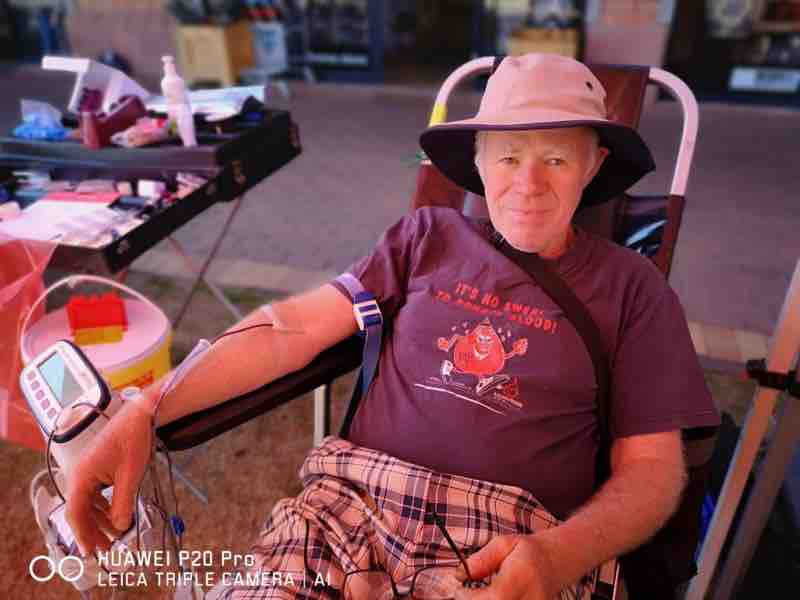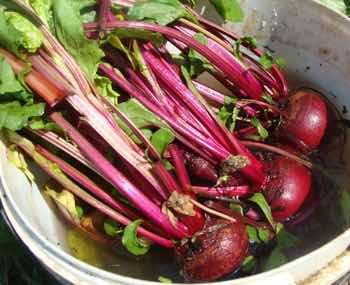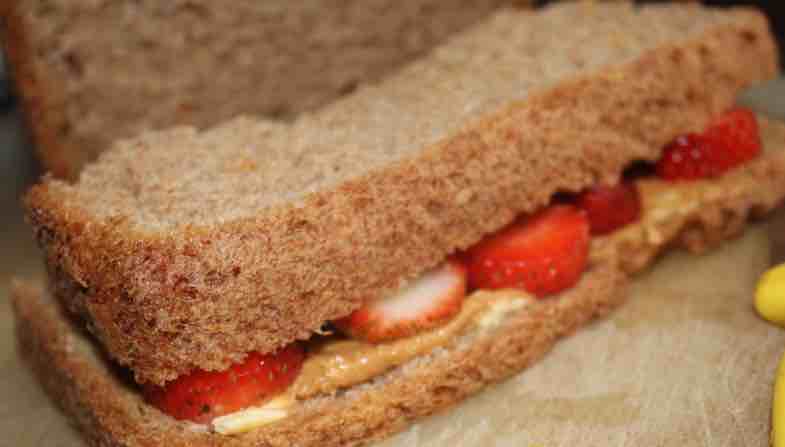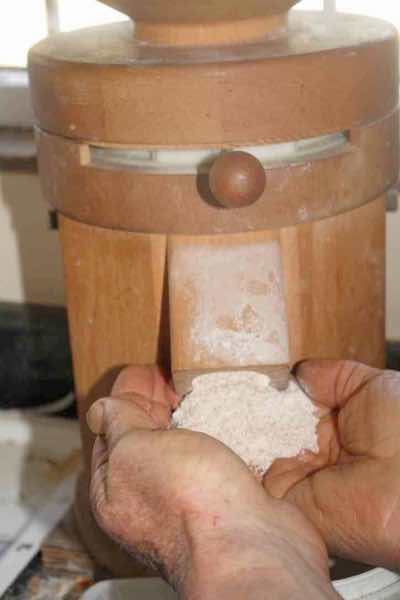Being a blood donor
Being a blood donor could be one of the most rewarding things you'll ever do if you hang in and stick it out; literally saving 3 lives for every pint according to the SANBS.
I am sure all of us do things that make us question, why am I doing this? It causes me so much grief of one sort or another. The answering echo from the cliffs on the other side of the ravine is now loud and clear; you have literally saved over 200 people's lives. But in the early years the silence was deafening; I just soldiered on.
Why do we put ourselves through so much angst? I don’t know; I suppose it is some deep part of our psyche.
My first attempted bleed about fifty years ago was an unmitigated disaster. Standing in the queue the nurse pricked my finger to test my iron levels and seconds later I was flat on the floor; the donation that never happened.
The second was both better and worse. The vampires got their pint but afterwards I passed out for twenty-minutes; the sister in charge told me never to come back. I scared the hell out of them.

I took her advice; it had scared me too. Ten years passed with me strictly avoiding the requests for donations. Then I went to train as a DC in Chicago; drawing blood was a normal part of our education in the USA. I couldn’t even prick the arm initially, let alone the vein but eventually got on top of my torment.
I passed the course, could do a tolerably good draw and have not done it once since.
I returned to South Africa, started practice and after a couple years there was some crisis. SANBS was pleading for donors; they were desperate. Should I go? The altruistic side of my personality prevailed. Luckily the vampires had learned a few things in the interim. I wasn’t standing when my finger was pricked and the atmosphere was generally a lot less frenetic.
Nevertheless every donation was traumatic for me. Could I do it? And so I began to go now and then. Often I would feel faint and at least half a dozen times I passed out completely; for a few minutes.
Less than 1% of adults are donors
This is lunacy, my family said and they were right. Yet the stubborn streak in me was determined to get on top of this. Lots of people donate blood. Why can’t I? My BP would sometimes soar to unknown heights scaring both the nurse and myself. Really I should have stayed at home but I soldiered on.
Gradually I learned little things. SANBS was getting more sophisticated too and started asking questions about when you last ate and so on. I was determined to get on top of this; why I really do not know. It's totally dumb, many said.
Finally and it’s taken fifty years of doubt and misery, I can donate a pint of blood without angst; and I have not fainted completely out cold for a decade.
The reason for this outburst has been a little article in the Journal of the American Medical Association that I peruse regularly. In January the Red Cross which supplies 40% of the blood used in the US, said it was facing its worst shortage in more than a decade. On some days it could only accommodate hospitals with less than a quarter of what had been requested.
I’m pretty confident in saying that the situation in SA is probably no different. Would you consider paying the vampires a little visit? It will be horrible most likely but I can assure you the phlebotomists are a whole lot better than they were fifty years ago.
Could donating blood cause an Iron deficiency anaemia?
One of things that surprises me is that my iron levels are always so good. We tend to think that you must get the mineral from red meat but it seems that beetroot, kale and true wholemeal bread provide more than enough; and our free-range eggs. Our crazy “flexitarian” diet gives my cousin full opportunity to derisively call me a Food Snob; we eat pork, mutton and beef only occasionally.
But that hasn't influenced my iron levels.
"The enhancement of nonheme iron absorption from vegetable meals is directly proportional to the quantity of vitamin C present."
- Ann NY Acad Sci.
Citrus and peppers are the two richest sources of vitamin C.

Being a blood donor
So what are my tips for being a blood donor? If you are one of those who freaks out at the thought of a big-bleed give some thought to these little rules. They work for me.
- Plan on a quiet day. Drawing half a litre of blood out of your body really is quite a big stress; this is not the time for rushing about.
- Find out when the vampires are coming to your neck of the woods; email SANBS and inquire. Ask a friend or family member to drive you. You don’t want to faint behind the wheel on the way home.
- Have a solid meal before setting out and drink half a litre of liquid before leaving home. Then ask for a glass or two of water over and above the fruit juice offered.
- Tell the nurse if you are anxious; you will find them understanding. You are not alone. It's difficult for probably a full half of donors.
- Don’t watch your finger being pricked or the needle going in. Let your mind soar elsewhere.
- Ask them to put the table back an extra notch so your head is lower than your legs; it all helps.
- One phlebotomist gave me a great tip; it really has helped. A slow draw is better so don’t pump hard on the sponge.
- And lastly stay on the table for a full ten minutes or longer after the draw is finished. Lie quietly and let your body get used to the new status-quo. You’ve just lost an awful lot of blood; perhaps another glass of water.
- And then finally sit upright in the chair quietly for a few minutes before you start to meander home. That was often the time that I used to feel wobbly.
Something like this peanut butter sandwich with natural honey and strawberries should be standard fare before being a blood donor.

Is peanut butter keto? Yes, but do look for those brands with no added sugar.
All I can tell you is that after fifty years it finally becomes old hat. Perhaps if you have a stronger constitution it will be easier. Being now a veteran of some 70 pints, I’m afraid I cannot promise you a bed of roses. It is one of the hardest things that I have ever done.
Modern medicine would collapse without those who come forward regularly. Women giving birth, children with malignant tumours and routine operations all need blood-donors.
Won’t you consider joining us?
There is one little plus. You or a family member could be the next person in desperate need. No one will promise in black and white but I am told you’ll get free blood or at least at a greatly reduced rate.
Blood ain't cheap. Will I see you there?
What happens to your body after donating blood?
Your body has just lost a whole pint of fluid after donating blood; it's important to restore that liquid as soon as possible. So drink water before, during and after the session.
And secondly you have lost red blood cells; the drop in the level of oxygen is sensed by the kidneys which start to produce a hormone that stimulates the bone marrow to synthesise more corpuscles. They are replaced within a few weeks.
So as not to exhaust supplies of iron you will not be allowed to donate again for two months; longer if you are elderly. There is plenty in our food if we are eating a well-rounded diet. Vegetarians get theirs from legumes, whole grains and leafy greens like spinach; potatoes, nuts and seeds too.
Being a blood donor is not detrimental to your health.
It's now been shown that we need have no concerns over the oxalates in spinach; they are not the cause of kidney stones.
Whole grains
Whole grains are good sources of iron but they are very difficult to find; corn on the cob and brown rice but what else? There's a big fat lie, sanctioned by international law that millers may extract up to 40% of the goodies and still label their product as wholemeal.
No longer are even the very best commercial flours and breads good sources of iron.
Eventually we bought a mill thinking that we would rather invest in our health than pay large sums to doctors and pharmacists. Prevention remains for ever better than a cure.
 100% flour
100% flourWhen browsing use right click and "Open Link in New Tab" or you may get a bad gateway signal.
The material expressed on this page is gleaned from the nutritional and environmental literature; it is clearly referenced. A plain distinction is made between the author's opinion and that which is scientifically proven. When in doubt consult your health professional.
To suggest a correction or clarification, write to Dr Bernard Preston here. Contact.
Newsletter
Our newsletter is entitled "create a cyan zone" at your home, preserving both yourself and Mother Earth for future generations; and the family too, of course. We promise not to spam you with daily emails promoting various products. You may get an occasional nudge to buy one of my books.
Here are the back issues.
- Lifestyle and ideal body weight
- What are ultra-processed foods?
- Investing in long-term health
- Diseases from plastic exposure
- Intensive lifestyle management for obesity has limited value
- A world largely devoid of Parkinson's Disease
- The impact of friendly bacteria in the tum on the prevention of cancer
- There's a hole in the bucket
- Everyone is talking about weight loss drugs
- Pull the sweet tooth
- If you suffer from heartburn plant a susu
- Refined maize meal and stunting
- Should agriculture and industry get priority for water and electricity?
- Nature is calling
- Mill your own flour
- Bake your own sourdough bread
- Microplastics from our water
- Alternative types of water storage
- Wear your clothes out
- Comfort foods
- Create a bee-friendly environment
- Go to bed slightly hungry
- Keep bees
- Blue zone folk are religious
- Reduce plastic waste
- Family is important
- What can go in compost?
- Grow broad beans for longevity
- Harvest and store sunshine
- Blue zone exercise
- Harvest and store your rainwater
- Create a cyan zone at your home
Did you find this page interesting? How about forwarding it to a friendly book or food junkie? Better still, a social media tick would help.
Address:
56 Groenekloof Rd,
Hilton, KZN
South Africa
Website:
https://www.bernard-preston.com